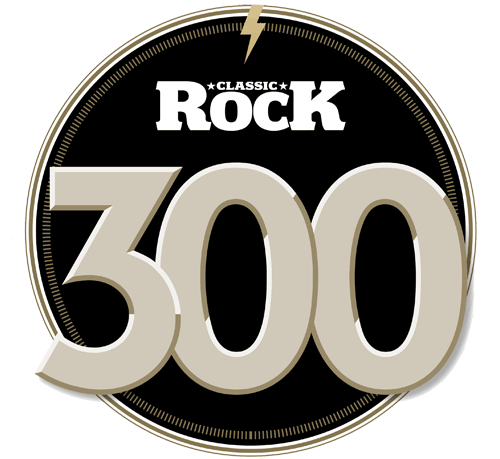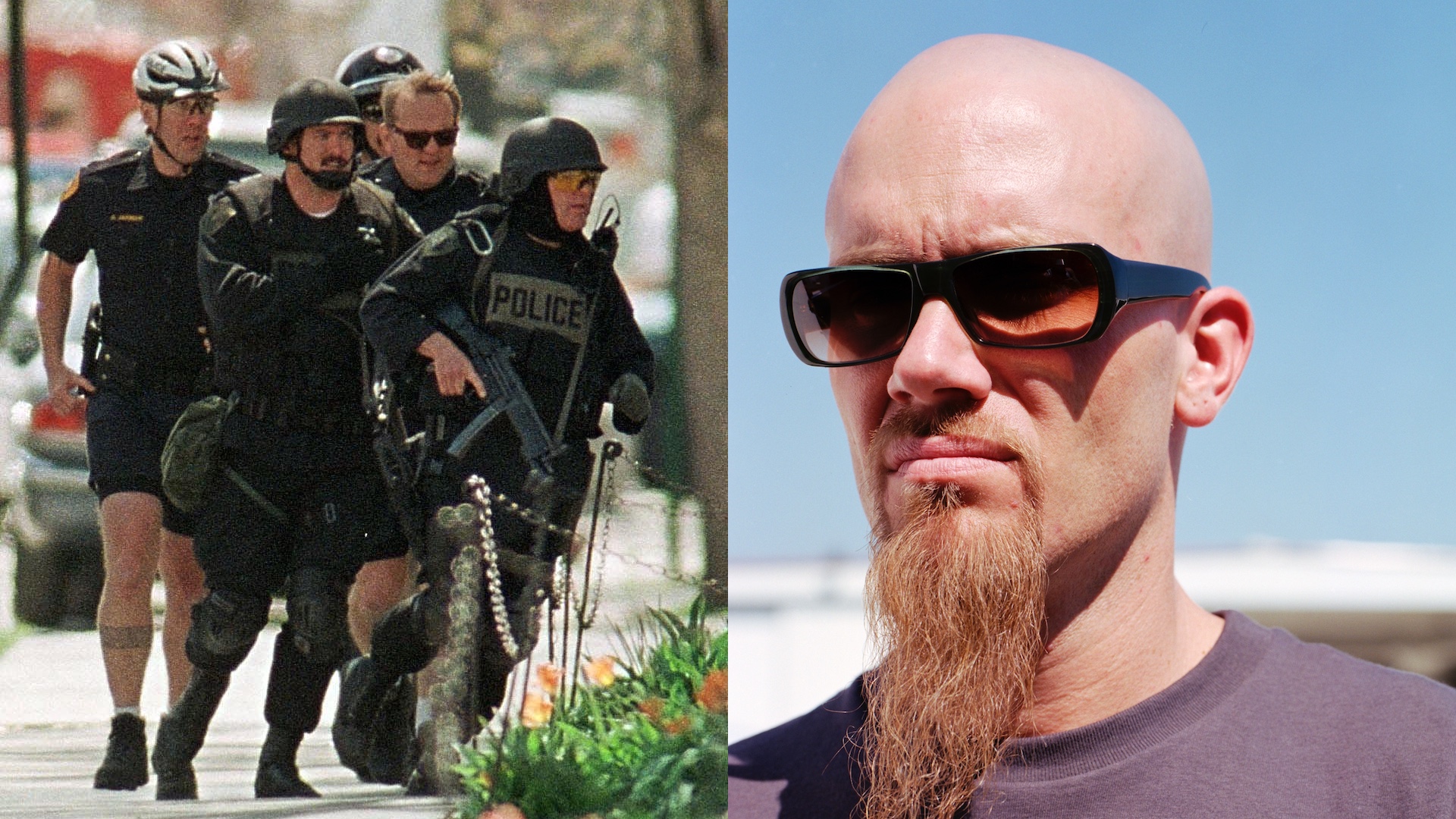Steve Vai and Joe Satriani on Instagram guitarists and the brilliance of Jimmy Page
Steve Vai and Joe Satriani talk about each other's new albums, co-ordinating releases, and those old lessons


This interview was conducted to mark the 300th issue of Classic Rock magazine, which launched in 1998. The anniversary issue is available to purchase online, and also features interviews with Gene Simmons, Def Leppard, Alice Cooper, Geddy Lee, Justin Hawkins, Kirk Hammett, Tony Banks, Fish, Slash and many more.
Virtuoso guitarists Steve Vai and Joe Satriani have featured in Classic Rock regularly over the past 300 issues, influencing many of the players in these pages too.
Satriani showed Vai the ropes (strings?) in the 70s while they were at high school in Long Island, and half a century later these lifelong friends are at the top of their game. They’re on fine form, too, as they Zoom in to talk new albums, memories, and music in 2022
Joe, you’re in San Francisco; Steve you’re near the San Fernando Valley. When were you last in the same actual room together?
Joe Satriani: It was 2020. We were on stage together in late January at [US music trade show] NAMM.
Steve Vai: And then you and [Satriani’s wife] Rubina were in town between lockdowns, and we went to dinner. But that NAMM show, that’s the last time I was on stage.
JS: Same here. Recently I was in Miami doing these art exhibits, and it reminded me what it’s like to hang out with people and shake hands. I thought: “Oh, that’s right – this is what I used to do!”
SV: The other night I went to see Dream Theater, the first concert I’ve been to in a couple of years, and it was so nice. Same thing – that vibe, the people. I miss it.
Sign up below to get the latest from Classic Rock, plus exclusive special offers, direct to your inbox!
You’ve both got albums out at the same time. Is that something you try to plan?
JS: We like to co-ordinate things if we can. It kind of legitimises what we’re doing, because what we do is so different from what’s really happening. We pursue our art in our own little world. So when we finally send each other our new records before release, we’re all excited about it, and go: “Well, let’s do it together!” It’ll hit the world with a stronger impact, rather than just being a lonely little album in a sea of pop and hip-hop.
SV: Yeah, we planned this when we were kids – “Yo, when the music business is all doing one thing…”
JS: “… Let’s do another!”
SV: But it is nice because it creates a momentum in the awareness of this huge undercurrent of guitar players that still love this kind of thing. We love what we do, and there is a legion of people that really respond to this kind of thing. So when we both release things, it’s strength in numbers, it helps us a lot.
Joe, do you have any favourite moments on Steve’s new record, Inviolate?
JS: The very beginning [opener Teeth Of The Hydra]. I love how the whole thing starts really dramatic, then just drops down. You get drawn in. I’m not surprised at the courageousness of that, because that’s Steve, and I’ve seen him do that a lot. But to do it on record today is a really bold move. It’s really beautiful.
And Steve, what’s your take on Joe’s Elephants Of Mars?
SV: Joe and I have been close for our whole lives. If, like him, you find something you love and just throw yourself into it without any excuses for your whole life, you’re gonna go deeper, and deeper, and deeper.
When I listened to this record, it was obviously an evolution – melodically, the depth of it, and the performance. The track Sailing The Seas Of Ganymede is just so powerful. I love the unexpected, and it’s full of that. You wonder: “What other tones can he possibly come up with?”
And then, bam, there’s another one. The ability to evolve in what you’re doing is a direct reflection of your interest in it. Just throw yourself into it without any excuses. I recognised this in Joe when I was twelve years old. Joe, did I mention that I found all our lessons?
JS: No, really?
SV: I was going through the attic and found the old case for my original Strat. I opened it up and there’s a stack of notebooks of my practice routines, and all the lessons we had together, three years’ worth. I’m looking through them and I see that this is where I got it all from. In one of the books Joe wrote: “If you don’t know your notes, you don’t know sh… blank, blank!”
JS: [Smiles] I tried to run a clean ship.
You were both at Carle Place High School then, and Joe was in his band Tarsus.
SV: The great thing about Tarsus was they were a little bit of the next generation, and me and my friends wanted to be them. They could really play, and sounded great.
The world’s changed so much, even since Classic Rock launched. What do you think of these guitar players who have a huge following on YouTube or Instagram, but who might never have played an actual gig in their life?
SV: There’s a place for everybody. We’ve been conditioned to believe that success can be measured by things like a bank account, the amount of records you sell or Grammys you win. But really, that ability to just sit and play in your room and love it could be offering a feeling of success in a way that the most ‘accomplished’ artists could experience.
JS: That ability to play to their phone drives me crazy. I don’t have that, and I’ve tried. I get jealous when I see somebody like [Insta guitarist] @fernplants sit and play the most complicated things day after day in front of the phone, between spoonfuls of cereal. Maybe because of where and when I grew up.
Put me in front of an audience, five people or five thousand, all of a sudden I turn on. I don’t know what that is. That’s always carried me through my lack of technique or talent, or incredible shyness. But what’s really exciting about social media is the amount of talented young people playing guitar, or all instruments. Never in history have there been so many amazing players doing things on six-, seven-, even ten-string guitars.
I take offence when people say: “People really aren’t into guitar any more.” Are you crazy? There are young people making history right now, you just haven’t caught up to it. And don’t even mention guitar players from fifty or a hundred years ago, they were nowhere near as advanced as these players.
Maybe that’s partly because of their starting point? If players like you two are the benchmark when a kid first picks it up, their expectations of the instrument are going to be high?
JS: Steve – he’s saying it’s all your fault. I have this theory I call ‘the Lenny Kravitz scale’. Lenny has got it all together – looks great, plays great, he can sing, write hit records, he’s an architect, has a wonderful family. Every time I have to do some press I think: “How far am I going to go on the Lenny scale here?” But when his Passion & Warfare came out [in 1990] Steve had it all together too – the new guitar, the look, the incredible playing and the songs. So it’s entirely your fault – you’ve spawned a generation of people who start there, for crying out loud!
SV: [Laughs] Blame my teacher! There’s been a couple of paradigm shifts since then. That happens in the world in all different fields – business, art. It’s like this monolith appears, then everybody’s coming into the world with these extra tools. When grunge hit there wasn’t a lot of virtuosity, but there was a development in tone and rhythm playing. Then around 2000 the whole seven-string thing was introduced.
Like Joe’s mentioned, there’s this subculture of people profoundly interested in the instrument and expanding it. They look around and say: “Hmm, okay, that’s what Vai or Satriani or Malmsteen or whoever was doing, so that’s my springboard right there.” And that’s what we did too. Joe’s right, with the advent of the internet and the accessibility to witness this growing phenomenon, it’s fascinating to watch. We’re happy to have been a rung in the ladder.
Do you guys still read music magazines like Classic Rock these days?
SV: I still get a little kick out of seeing myself in a magazine. I don’t actively go out and look, but they inevitably come across the desk, or screen. We were both teenagers in the seventies, so all those classic rock bands are still beating in our hearts. That music is so ingrained in us, it’s nice to see it’s still being supported so well.
JS: I’ve spent the last couple of months listening to live Led Zeppelin for hours a day. I can’t believe how great Jimmy Page is, and how amazing that band is. There’s quite a few live recordings out there now you can stream, and it sounds better than it did in Madison Square Garden when we were kids!
The bravery and the improvising chops, you just don’t hear that any more, and audiences crave it. Bands went out there and just made shit up on the spot! That part of classic rock is, like Steve said, embedded inside of me, and still vibrates. Any time a magazine covers that aspect of that genre, I love it. If you interviewed Jimmy Page about improvising every night on tour, I’d be all over that.
A music journalist for over 20 years, Grant writes regularly for titles including Prog, Classic Rock and Total Guitar, and his CV also includes stints as a radio producer/presenter and podcast host. His first book, 'Big Big Train - Between The Lines', is out now through Kingmaker Publishing.

